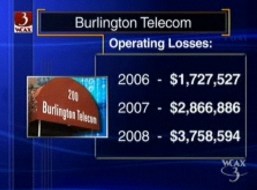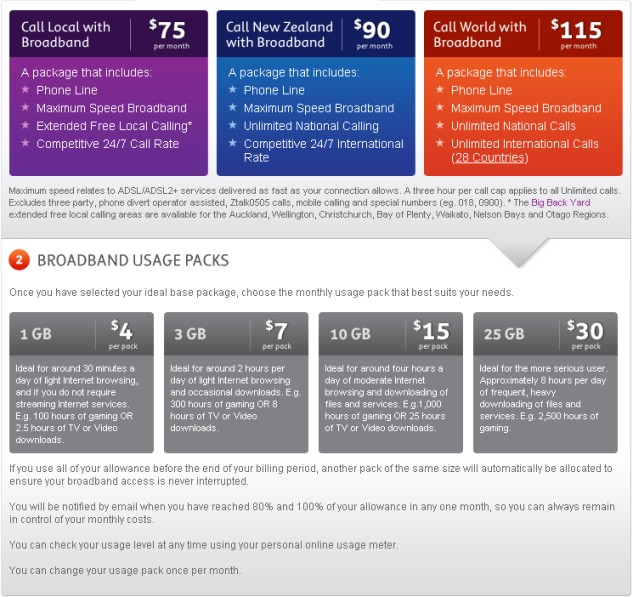
Steven Shepard, president of Shepard Communications Group
Burlington Telecom, the municipally owned fiber to the home cable and broadband provider still reeling from a late fall financial scandal, must think outside of the box if it is to survive and grow its business in Vermont’s largest city. That’s the assessment of Steven Shepard, president of Shepard Communications Group, a consulting firm based in Williston.
It comes as both city and state officials continue an investigation into a $17 million loan from city coffers to cushion the provider from substantial losses incurred over the past three years of operations.
Burlington Telecom has been criticized for underestimating the costs of wiring Burlington with fiber optics, something Shepard doesn’t think is unusual.
“I haven’t found one yet that has come it at budget, or even under budget,” Shepard told WCAX-TV news.
Burlington Telecom director, Chris Burns, says the company needed the additional money to cover capital expenses as it works to build its all-fiber network in every part of the city. He says the initial investment of $33 million dollars was not enough. “Some of the early estimates weren’t based on firm engineering quotes,” says Burns. “They were rough order magnitude estimates.”

Chris Burns, Burlington Telecom
Burns feels Burlington Telecom needs to expand its service area to bring in additional customers to help keep the provider up and running. Some customers recognize Burlington Telecom is a unique, municipally-owned asset that can potentially provide services that Comcast, the dominant cable provider in the area, cannot. Comcast operates a traditional hybrid fiber-coaxial cable network with more limited bandwidth than Burlington Telecom’s direct fiber optic connection to the home can provide.
But Shepard believes most consumers don’t know or care how service reaches them, and believes fiber optic networks alone do not bring instant success to providers.
Unless Burlington Telecom creates services that would be difficult for Comcast to deliver, they are just another telecommunications company, Shepard believes.
One suggestion from Shepard: an automatic file backup service. Fiber optics can provide upstream speeds equivalent to downstream speeds, something Comcast cannot easily deliver. Such a service would automatically send a copy of every file to a secured, encrypted off-site backup system. If a customer needed the file restored, or an entire hard drive, Burlington Telecom could transmit the files on request. Assuming privacy is protected, such a service would give consumers a potential reason to switch providers.
For broadband customers, providing upstream and downstream speeds faster and cheaper than Comcast will go a long way towards motivating consumers to switch.
[flv width=”368″ height=”228″]http://www.phillipdampier.com/video/WCAX Burlington Can Burlington Telecom Survive 11-05-2009.flv[/flv]
WCAX-TV Burlington interviews Steven Shepard about the ongoing viability of Burlington Telecom. (November 5, 2009 – 4 minutes)
For some Burlington Telecom customers, improving customer service is an important first step, as WCAX found:
“A few weeks ago, the whole BT was down for half hour, phone and cable. And probably internet but I don’t have that,” says Beth Cane, who lives in the city’s south end. Cane says getting through to customer service is “like trying to get into Fort Knox.”
She is not the only one complaining. Rob Lyman says he is “not happy” with Burlington Telecom’s service. “I watched a trailer for an on-Demand movie and the whole system froze up and required a reboot of BT’s box. When I called the help desk they said they’ve known about this problem for six months and didn’t know when it would be fixed,” he says.
 In mid-November, a possible solution to the funding issues came from Piper Jaffray, a Minneapolis-based investment firm. The company offered Burlington Telecom a $61.6 million dollar refinancing package that would help keep the company viable and return taxpayer funds caught up in the controversy to the city.
In mid-November, a possible solution to the funding issues came from Piper Jaffray, a Minneapolis-based investment firm. The company offered Burlington Telecom a $61.6 million dollar refinancing package that would help keep the company viable and return taxpayer funds caught up in the controversy to the city.
The proposal was met with political wrangling from the Burlington city council, which spent the last month and a half doing damage control.
“Once TelecomGate went radioactive in October, it was everyone for themselves on the city council as the finger pointing started,” Stop the Cap! reader Dwayne writes from Burlington. “The progressives are blaming the former Bush Administration’s economic catastrophe for wrecking the credit and financing markets BT needed to access, the Democrats are trying to play the role of moderates, and the Republicans are questioning why the city should compete with Comcast in the first place. Demagoguery is universal,” he shares.
The rhetoric has grown so heated, it has stalled the city council’s approval of the loan package, to the disappointment of Mayor Bob Kiss.
[flv width=”368″ height=”228″]http://www.phillipdampier.com/video/WCAX Burlington Burlington Telecom Gets New Backing 11-13-2009.flv[/flv]
WCAX reports Burlington Telecom has the potential to secure new funding to refinance operations. (November 13, 2009 – 3 minutes)
The Burlington Free Press has documented some of the language now a part of the debate:
“I do not believe that keeping Burlington Telecom alive during the absolute failure of our capitalist system was the wrong thing for any of us to do. We can’t afford to sit around. We have an interest payment (for BT’s current $33.5 million outside debt) that is due in February.” — Marrisa Caldwell, P-Ward 3, a Progressive Party member characterized as a fierce supporter of Burlington Telecom, is upset the city council delayed the approval of the loan package.
“The same forces that want to preserve the private insurance monopoly in health care by opposing the “public option” are now out to preserve the private corporate monopoly in Vermont telecommunications. The [Governor Jim Douglas (R)] administration is hell-bent on putting Burlington Telecom — which provides public sector competition to for-profit corporations such as Comcast and FairPoint — out of business, no matter what the consequences.” — John Franco, Vermont Progressive Party
“[Vermont Public Service Commissioner David O’Brien] is a political hack appointed by Douglas. They only want private-sector telecom in the state. He is out to get rid of the competition for the private companies. That’s very clear.” — Marrisa Caldwell
“I’m not going to engage in this kind of dialogue. It serves no purpose. We’re going to proceed with the investigation and work to resolve this situation.” — Deputy Public Service Commissioner Steve Wark, asked to comment on Caldwell’s remarks.
Caldwell also charged that the Free Press coverage of the BT issues has been influenced by advertising revenue from cable provider Comcast. She called the council’s vote to delay action on the new BT loan “disingenuous at best. It’s completely dysfunctional government,” she said. “They just tied the administration’s hands and hamstrung BT.”
“[On the city council’s lack of resolve and action] it’s erroneous and not well-founded. I never heard anyone say why they wouldn’t move forward (on the BT loan). It wasn’t leadership and (was) a lack of ability to collectively try to solve the problem.” Sharon Bushor, I-Ward 1, who generally supports Burlington Telecom.
“It seems only rational to do our homework on this (loan). I don’t think one of us is saying it isn’t feasible. All we’re saying is slow down and learn more.” Councilman Paul Decelles, a Republican, called Caldwell’s remarks “destructive. I would challenge her to find one councilor who has thrown out the word ‘partisan,'” he said. “That word is coming from the administration and from the three Progressive councilors. We’re trying to do what is best for Burlington. This is the residents’ telecom. If acting in a slow, methodical way is unacceptable to some, so be it. It’s irresponsible of them to expect us to rubber-stamp this.” — Paul Decelles, R-Ward 7
“I am shocked and shocked again every time someone raises the partisan flag. This could have been a Republican or a Democratic blunder. The Progressives have been in office a long time. That’s just a fact. When we disagree, apparently, we’re being partisan, (but) it’s not personal, and it’s just not partisan.” — Nancy Kaplan, D-Ward 4
“No one is interested in destroying BT and the administration. Jonathan Leopold said Monday that (the council’s position on BT) was an attempt to destroy the administration. From my own perspective, that’s not the case at all. The first order is to take care of BT, but there have been missteps by the administration.” Mary Kehoe (D-Ward 6) said she has concerns about the loan proposal from Piper Jaffray, particularly the language that indicates the loan repayment will come from Burlington Telecom revenues in the form of city budget appropriations. “If (BT is) short, what then? How do we know BT is going to have the capacity?” She said she voted to delay a decision on the loan, “because we want information. We’ve not been getting the information, and they want us to sign off. That’s not going to happen anymore.” — Mary Kehoe, D-Ward 6
“This is ridiculous. Burlington is starting to look more and more like Washington, with the level of partisan wrangling reaching an intensity that I’ve never seen before in my 15 years of living in Vermont.” — One resident commenting on the coverage and the back and forth.
[flv width=”480″ height=”380″]http://www.phillipdampier.com/video/WPTZ Plattsburgh Burlington Telecom Editorial Oct 28 2009.flv[/flv]
WPTZ in Plattsburgh, which is part of the Burlington television market, ran a station editorial on the Burlington Telecom matter on October 28th. (1 minute)
 Time Warner Cable is offering mobile phone providers a solution to their clogged wireless networks — clog ours instead!
Time Warner Cable is offering mobile phone providers a solution to their clogged wireless networks — clog ours instead!


 Subscribe
Subscribe






